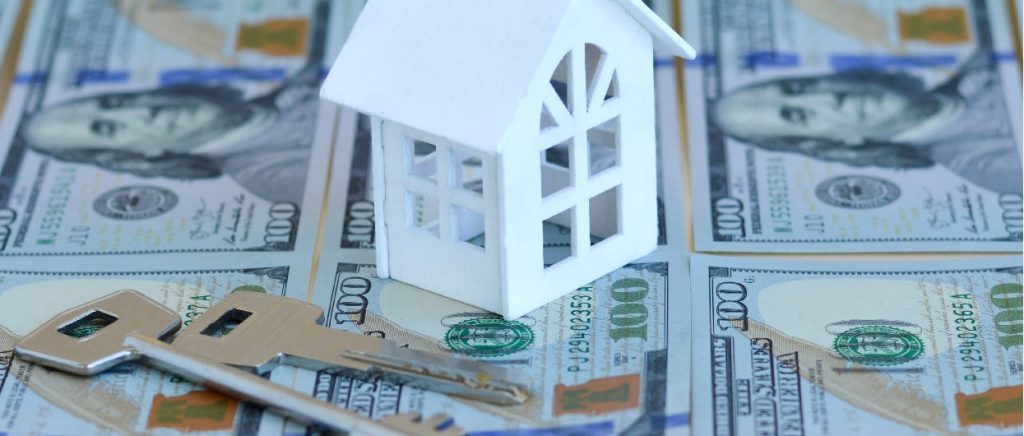Cash-out Refinancing Vs. Home Equity Loans – It lets you use your property as collateral to borrow cash. Finding out which option is suitable—may depend on your current mortgage, home value, lender’s offer, and creditworthiness.
What is Cash-out Refinancing, and How Does it Work?
Cash-out refinancing is a home loan that enables you to borrow part of the home equity by replacing your current mortgage loan with a new mortgage. The new loan will be costlier than your previous balance, and you’ll notice the difference in cash.
The process can be similar to acquiring your first mortgage and may require a home appraisal to determine the value of your property. Generally, you can borrow 80% to 85% of the value of the house. However, if your loan (LTV) value exceeds 80%, you may need to pay for private mortgage insurance (PMI) for your new mortgage.
For example, suppose your home is worth $300,000; 80% of that amount is $240,000. If your current debt balance is $200,000, you can get a cash-out refinancing for $240,000 and earn $40,000 in cash. Later, you will pay the loan based on the terms of a new mortgage. As with purchasing a mortgage, you can choose between fixed and variable interest rates with a refinancing period of 15 to 30 years.
Ideally, you can take out a lower interest rate to save money; however, the cost of closing can offset some of the savings.
How Does a Home Equity Loan Work?
A house equity financing is a second mortgage that you can obtain in addition to a primary mortgage. There is a similar home equity line of credit (HELOC), but it provides a line of credit that you can borrow in advance to replace the entire loan amount.
For home equity loans, some creditors allow you to borrow 85% to 90% of the home’s value based on combined loan to interest value (CLTV). The CLTV value specifically counts the balance of your initial mortgage and home equity loan. Proceeding with the figures above, when your house is worth $300,000, 90% of that amount is $270,000. If your current debt amount is $200,000, you can get a home loan of $70,000.
Getting a house equity finance might be quicker if the creditor does not require a personal evaluation. Moreover, some lenders will pay for closing costs on home loans. Home equity loans typically have fixed mortgage rates and shorter terms than the primary home mortgage. Nevertheless, you need to pay monthly mortgage settlements on both your original mortgage and home equity loan.

Cash-out Refinancing Vs. Home Equity Loans
The choice between cash refinancing and home equity loans may depend on the amount of equity you have established in the home, your credit rating, and the lender’s current offer.
If cash-out refinance would mean raising your mortgage interest rate or private mortgage insurance, then the higher monthly payments and long-term costs may not be rewarded. Nevertheless, if you can set a lower mortgage interest rate and get some cash from your home simultaneously. In that case, refinancing is a win-win option when you need to borrow money.
A home equity loan will be the best option if you want to increase the equity of your property. Or you cannot find a reasonable mortgage interest rate when refinancing. Your monthly repayment amount may be higher if you choose a short-term loan, but it also means that you will repay less interest over the loan term.
How a Home Equity Loan and Cash-Out Refinancing Impact Credit
Typically, the amount owed for cash refinancing and home equity loans may have the same effect on credit ratings. The main difference is that cash-out refinancing will result in the payment and closure of your original mortgage, while the home loan is just an additional loan. However, repaid loans can remain in your credit report for up to 10 years and continue to affect your results during this period.
Cash-out refinancing, as well as home equity loans, both involve taking out new installment finance. The lender can carefully review your credit report in either case. In addition, when your loan is added to your credit report, the average age of the account in your report will decrease, and your loan will have a large balance compared to the original loan amount. All of these aspects can easily affect your results, but these are secondary factors.
Check Your Credit before Loan Shopping
Cash-out Refinancing Vs. Home Equity Loans – receiving a secured loan may be easier than an unsecured loan. Still, your creditworthiness will be crucial in determining mortgage approval, the amount you borrowed, and the required interest rate. Sometimes, it makes sense to improve your credit score before getting a large loan. However, if you can’t wait, you can acquire a cash-out refinancing or home equity loan even if you don’t have an outstanding credit rating.
Generated with WriterX.ai — best AI tools for content creation

